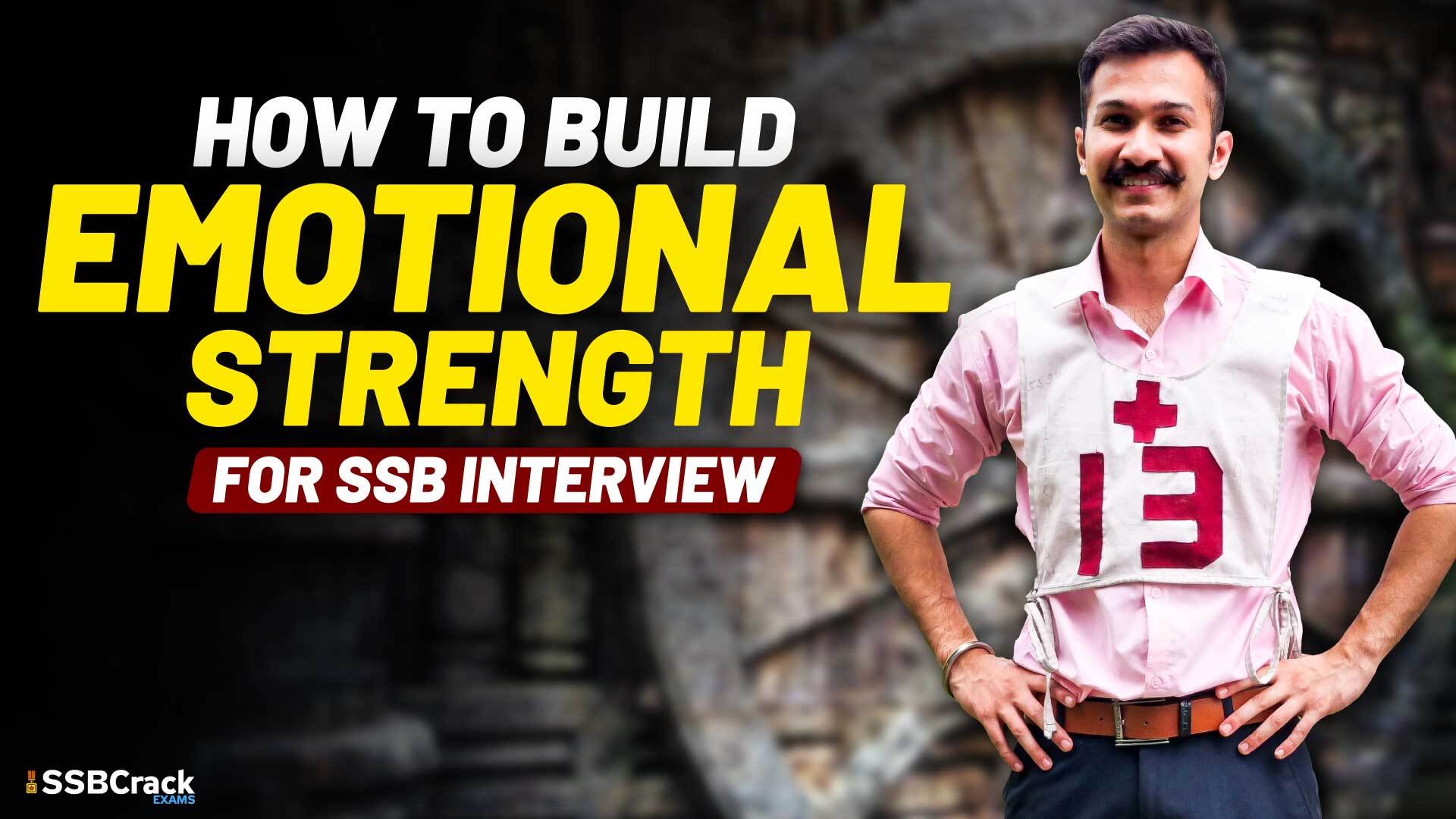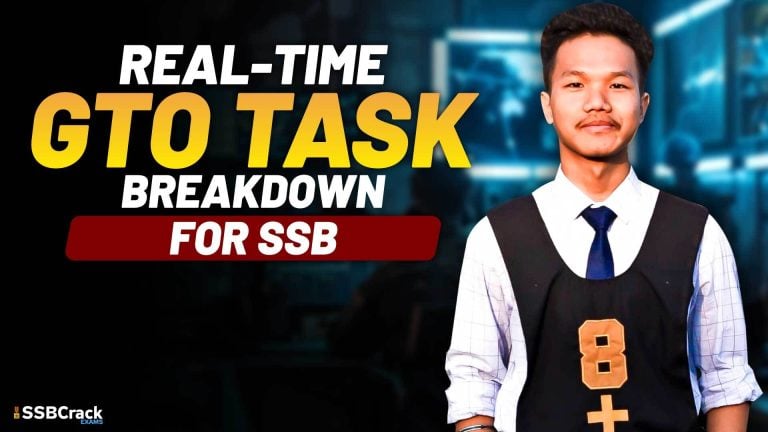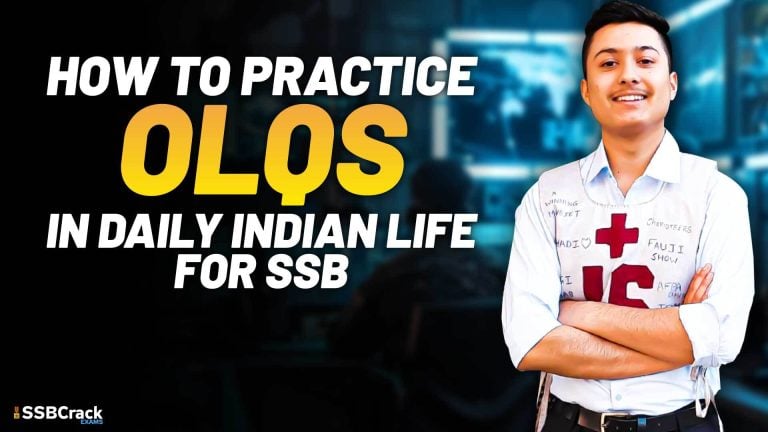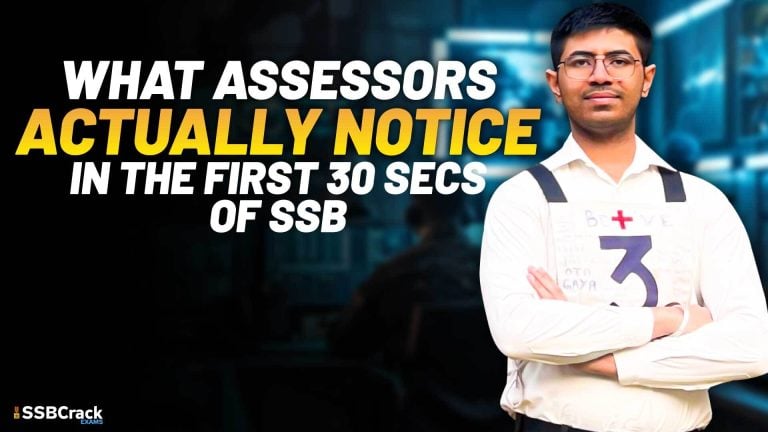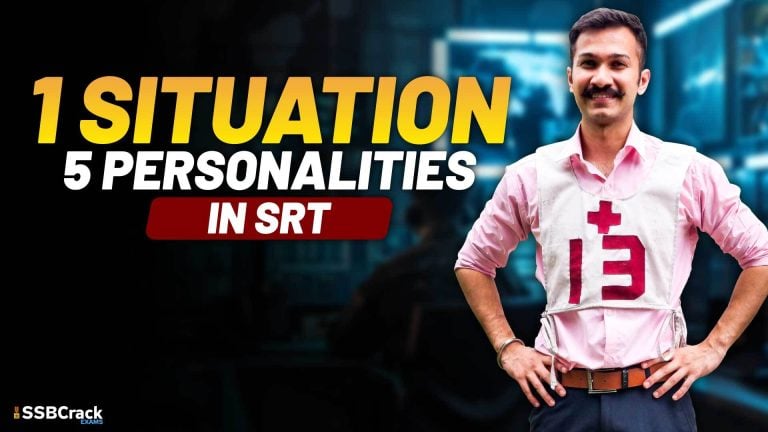The SSB Interview doesn’t just test your mind — it tests your heart.
When assessors talk about Officer-Like Qualities (OLQs) like empathy, courage, composure, and emotional stability, they’re really asking one question:
“Can you stay balanced, positive, and responsible when life gets tough?”
Emotional strength is the hidden backbone of an officer’s character. It’s what helps you stay calm when others panic, make decisions when others freeze, and smile even under pressure.
In this article, we’ll understand what emotional strength really means for an SSB aspirant and how you can develop it naturally.
What Emotional Strength Looks Like
Emotional strength isn’t about suppressing emotions.
It’s about understanding and managing them.
An emotionally strong person:
- Feels fear but acts despite it.
- Faces criticism without breaking.
- Accepts failure and learns from it.
- Supports others even while struggling.
This calm maturity is what the SSB assessors observe through your psych tests, interview responses, and group behaviour.
Where Emotional Strength Shows Up in SSB
- In TAT stories, you stay hopeful and problem-solving, not panicky.
- In SRTs, you take rational decisions even in emergencies.
- In Interview, you answer with honesty and balance, even about weaknesses.
- In GTO, you stay cheerful and encouraging even if your group struggles.
Every moment at SSB is a test of how gracefully you handle pressure.
How to Build Emotional Strength Daily
A. Reflect Instead of Reacting
When something frustrates you, pause before reacting. Ask, “What’s the right thing to do?”
That pause is where emotional maturity grows.
B. Accept Failures with Grace
Didn’t clear a test or interview? Instead of self-doubt, reflect: What did I learn?
Every setback is training your resilience — an officer’s most powerful armour.
C. Stay Emotionally Connected, Not Dependent
Love your friends and family deeply, but don’t let emotions cloud your judgement.
Emotional independence shows self-control and balance.
D. Practice Gratitude and Calmness
Daily journaling, meditation, or simply appreciating small wins builds optimism — an officer’s mental shield against negativity.
How Assessors Notice Emotional Strength
Assessors subconsciously observe:
- Your facial calmness under stress
- The tone of your voice during interview
- How you react to tricky or personal questions
- How you treat your teammates in group tasks
If you stay positive, supportive, and composed — you’re already reflecting officer-like emotional resilience.
Remember: Being Vulnerable ≠ Being Weak
Even officers feel nervous, scared, or sad. What makes them strong is that they acknowledge emotions and act rationally anyway.
Your emotional openness in answers like —
“Yes, I get nervous before public speaking, but I’ve been practicing daily to improve,”
— shows maturity, not weakness.
Conclusion
The heart of an officer isn’t made of steel — it’s made of compassion, courage, and control.
The SSB isn’t looking for emotionless candidates; it’s looking for those who can balance emotion with action.
So, nurture your heart — stay kind, patient, and strong in spirit. Because the best officers don’t fight battles with anger — they fight them with purpose and poise.
✨ Your emotions are your strength — learn to lead them, not hide them.
